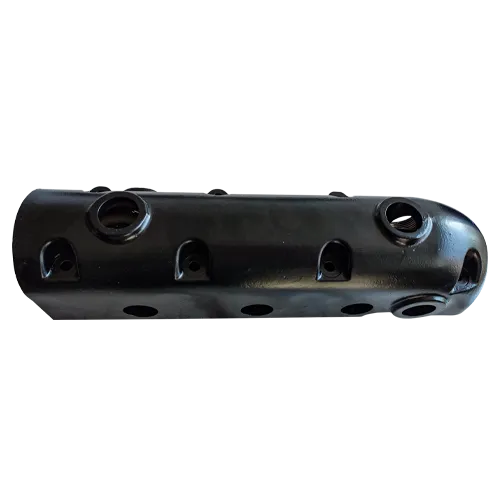Mobile:+86-311-808-126-83
Email:info@ydcastings.com
Aluminium Alloys for Casting Applications and Their Key Properties and Benefits
Aluminium Alloys for Casting A Comprehensive Overview
Aluminium alloys are widely recognized for their versatility and strength, making them an ideal choice for various applications, particularly in casting processes. The unique properties of aluminium, such as its lightweight, corrosion resistance, and excellent thermal conductivity, have made it a preferred material in industries ranging from automotive to aerospace. This article explores the significance and characteristics of aluminium alloys specifically formulated for casting.
Types of Aluminium Alloys for Casting
Aluminium alloys used for casting are typically categorized into two main types wrought alloys and cast alloys. While wrought alloys are manipulated through mechanical processes like rolling and forging, cast alloys are specifically designed for melting and pouring into molds. The primary alloying elements in casting alloys can include silicon, copper, magnesium, and zinc, each imparting distinct properties to the final product.
1. Silicon Alloys (Al-Si) Silicon is the most commonly used alloying element in casting aluminium. Alloys with a higher silicon content (typically greater than 12%) exhibit excellent fluidity, enabling them to fill complex molds easily. This characteristic makes Al-Si alloys ideal for precision components, such as engine blocks and automotive parts. The addition of silicon also enhances wear resistance and reduces thermal expansion, which is crucial for applications requiring dimensional stability.
2. Copper Alloys (Al-Cu) Aluminium-copper alloys are known for their improved strength and machinability. These alloys are frequently employed in applications that demand high strength-to-weight ratios, such as aerospace components. However, it is essential to note that copper can reduce corrosion resistance, which necessitates careful consideration of the application environment.
3. Magnesium Alloys (Al-Mg) These alloys are recognized for their excellent corrosion resistance and weldability. Aluminium-magnesium alloys are often used in marine and automotive applications where exposure to moisture or corrosive environments is a concern. Additionally, they retain high strength while providing good ductility, making them suitable for various structural components.
4. Zinc Alloys (Al-Zn) With good castability and strength, aluminium-zinc alloys are used in applications that require high mechanical properties. Although these alloys can be more challenging to cast due to their susceptibility to porosity, proper processing techniques such as optimizing melting conditions can improve outcomes.
aluminium alloy for casting

Advantages of Aluminium Casting Alloys
The advantages of using aluminium alloys for casting are manifold
- Lightweight Aluminium is significantly lighter than steel, contributing to overall weight reduction in various applications
. This property is particularly beneficial in industries striving for fuel efficiency and reduced emissions, such as automotive and aerospace.- Corrosion Resistance Aluminium alloys exhibit excellent resistance to corrosion, especially when treated with protective coatings. This durability extends the lifespan of products, reducing maintenance costs in the long term.
- Versatility in Design The fluidity of molten aluminium allows for intricate designs and shapes that might be difficult to achieve with other materials. This attribute is crucial for manufacturers seeking to innovate and enhance the functionality of their products.
- Recyclability Aluminium is highly recyclable without loss of its properties, making it an environmentally friendly choice. The ability to recycle aluminium efficiently contributes to sustainability efforts across industries.
Conclusion
Aluminium alloys for casting play a pivotal role in modern manufacturing due to their unique properties and adaptability. The selection of the appropriate alloy depends significantly on the specific requirements of the application, including desired mechanical properties, environmental factors, and design complexity. As industries continue to evolve towards lightweight and durable materials, aluminium casting alloys will remain at the forefront, driving innovation and sustainability.
-
Why Should You Invest in Superior Pump Castings for Your Equipment?NewsJun.09,2025
-
Unlock Performance Potential with Stainless Impellers and Aluminum End CapsNewsJun.09,2025
-
Revolutionize Your Machinery with Superior Cast Iron and Aluminum ComponentsNewsJun.09,2025
-
Revolutionize Fluid Dynamics with Premium Pump ComponentsNewsJun.09,2025
-
Optimizing Industrial Systems with Essential Valve ComponentsNewsJun.09,2025
-
Elevate Grid Efficiency with High-Precision Power CastingsNewsJun.09,2025











